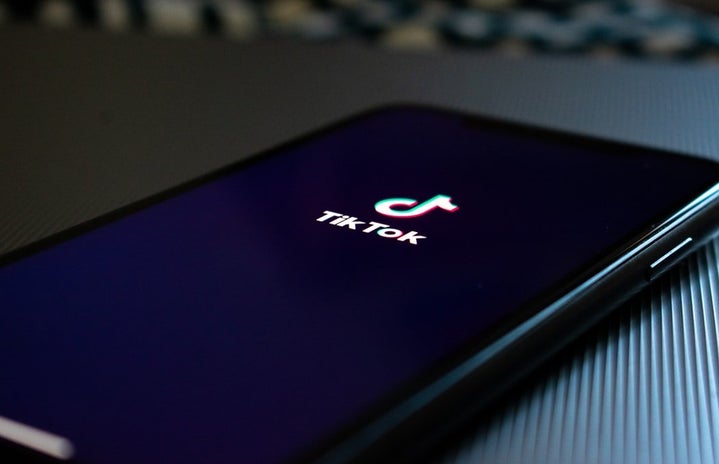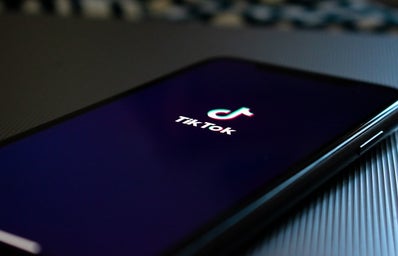If you have been keeping up with Internet drama, you might have seen that the D’Amelios and Addison Rae recently came under lots of flak for a range of things. From the 2021 Met Gala outrage to their debut in the traditional media space (The D’Amelios’ reality show and Addison’s remake of “She’s all that”). Not only them, but Tiktokers in general have always attracted tons of hate.
“Cringey”, “Just a pretty face”, “Untalented” — these are just some of the hateful comments that are thrown around when it comes to TikTokers, but especially to the D’Amelios and Addison Rae. Perhaps because they are the most followed on the platform and exemplify the stereotypical girl-dancing-on-TikTok kind of influencer. But why do we hate this group of Tiktokers so much?
Before Tiktok’s surge in popularity in 2020 when the pandemic first hit, Tiktok was known for its dance and acting challenges. While the platform’s content has gotten much more diverse, it is still unable to escape its legacy of awkward and “cringey” content as its most popular creators —Charli, Dixie and Addison— create such videos. A quick Google search of Charli D’Amelio and Addison Rae shows them as dancers. But many do not view their on-the-spot, basic movements as constituting the sort of quality dance performance that we traditionally see in the theatre.
In the age of social media where the process of becoming famous has become democratised, anyone can become an influencer. And I quite literally mean anyone. With traditional celebrities, they are often famous because they are talented artists. They either sing, dance, act, write or even do it all. But with Tiktokers, they can go viral for doing the bare minimum in some dance challenge and become famous with the help of an algorithm. While success in the entertainment industry has always depended on luck and talent, it now appears that luck is almost the only factor required for someone to gain recognition.
This perhaps makes us envious, as these Tiktokers have successfully used social media to their advantage and fame is supposed to be just “luck” or “so easy” for them. It also seems unfair that there are tons of talented artists struggling to be seen, but these Tiktok influencers get millions of views without even properly singing or dancing. Thus, we view their success as something that can be easily attained by anyone and do not respect them as much as traditional celebrities.
And notice how the hate seems to reach its peak when these Tiktokers cross into the traditional media space? When they launch their music careers, start a reality TV show or attend the Met Gala, everyone is quick to point out how they are undeserving of the opportunities they get, especially since we view their fame as easily attained. With something as high-profile and prestigious as the Met, invitees are traditionally brilliant actors, singers or even politicians. So when someone who we think isn’t that different from ourselves, except that they basically got lucky and became famous, got invited to the Met or offered opportunities in various other fields, it might be a bitter pill to swallow.
As young girls like the D’Amelios seem to have it all, it is easy for us to lose our empathy when it comes to the amount of hate they deal with. But have we stopped to see how the constant hate comments and cyberbullying actually affect them? Do they even deserve the criticisms they receive? Is their content really cringey, or are we just hating on it because it is easy to verbally attack something just for kicks?
When you think about it, what’s considered cringey is really subjective. It is easy for us to make fun of their content, but it is evident that these Tiktokers’ endless videos of dance challenges aren’t really targeted at millennials or zillennials, but children and young tweens who enjoy such content. Besides that, so what if it is cringey? At the end of the day, what’s so bad about a bunch of teenagers dancing in front of a camera? As long as their content remains fun and does no harm, I don’t see why we need to just hate on it so incessantly.
Many also argue that it is unfair that these young Tiktok stars are able to gain such massive followings almost overnight as there are many artists out there who are struggling to get recognised. In addition, some believe that Tiktokers are undeserving of the opportunities they receive: Many of them have launched their music careers or even gotten movie deals when they aren’t really talented. Since the music and film industries are extremely competitive, this denies talented musicians and actors the opportunities they deserve. As put by this struggling stand-up comedian in this article, it can be extremely frustrating to watch someone get what you have worked hard for overnight.
But, to hate on Tiktokers for their fame is also unfair to them. As Youtuber Drew Gooden mentioned in his video on the D’Amelios’ reality TV show, for better or worse, the internet has democratised the process of becoming famous by allowing random people’s posts to become viral for any reason. Fame, as we know it, is being redefined: you could go viral for making a comment about your friend Daniel’s white Vans or bopping your head to a tune. We might disagree with this trend, but we should recognize that it’s not really the fault of Tiktokers themselves.
So what do they do with this newfound fame? As they have conquered the digital space, they often seek to expand into other areas, namely the traditional media space. Gooden argues that this has resulted in a situation where these new Tiktok stars are becoming famous before they hone their skills, and thus have to publicly fail as they try to find what they are good at. Traditional celebrities often train for years before making their debut. Now, these Tiktok stars like Dixie D’Amelio jump ahead and come up with a single because they have the resources and connections before they are even ready to do so. It’s no surprise then that they do not perform as competently as someone who has extensive music training and education. So perhaps we could be more understanding and empathetic of these Tiktokers as they go through this journey, rather than hate on them for even trying to do so. I mean, has anyone ever been good at something on the first try? I don’t think so!
After watching the D’Amelios’ reality TV show, it is clear that the D’Amelio sisters both suffer from anxiety due to the stress of being overly scrutinised. As their fame has blown up so massively within the span of a year, they are probably not equipped enough to deal with the hate comments. With other influencers and celebrities who got their fame at a slower rate, hate comments also accumulated more slowly over the years and they learnt to handle it. Whereas for these young Tiktok stars, the hate hits them like an avalanche and they may still struggle to outrun it.
As people outside of these Tiktokers’ bubble, most of us probably do not care that they are dealing with these personal problems as we don’t think their problems are worse than our own. It is easy to jump on the hate train without realising that they are real people with real human emotions who didn’t necessarily ask to be famous and the consequences that come with it.
All in all, while it can be argued that they perhaps do not deserve the platform that they have, it is hard to see how they also deserve the constant hate and cyberbullying. As human beings, we should all try to be more empathetic towards others. As cheesy as it sounds, everyone is on their own journey, even those who seem to have it all.


